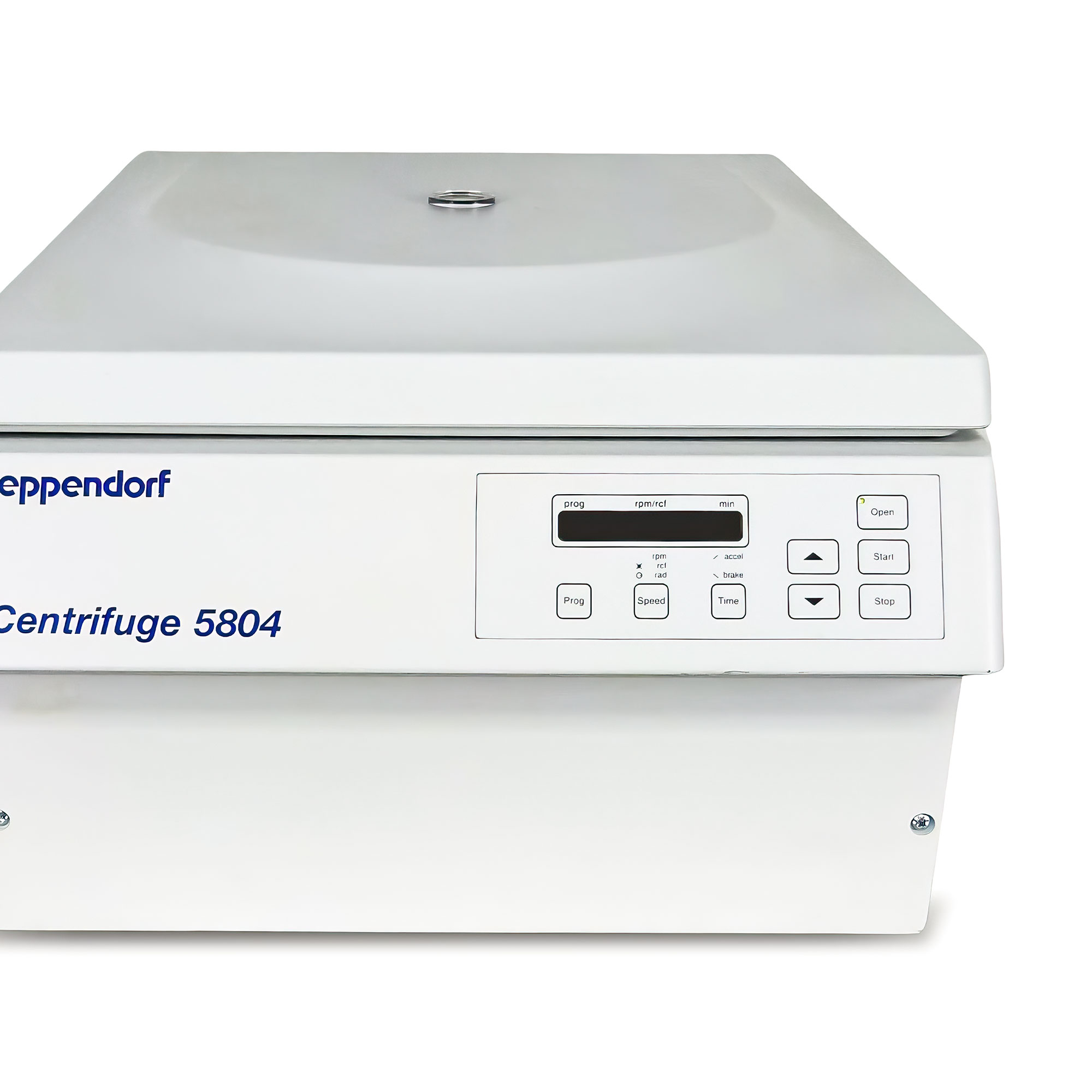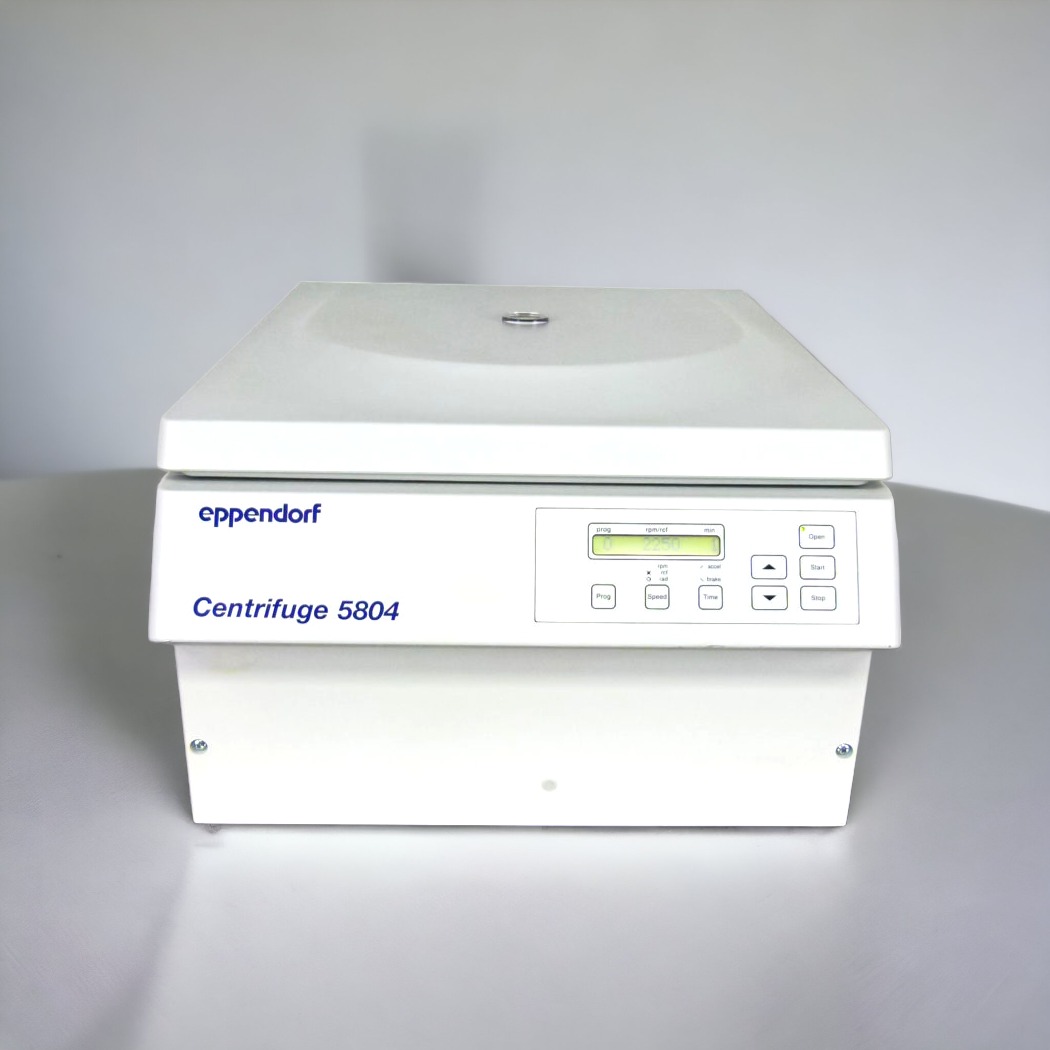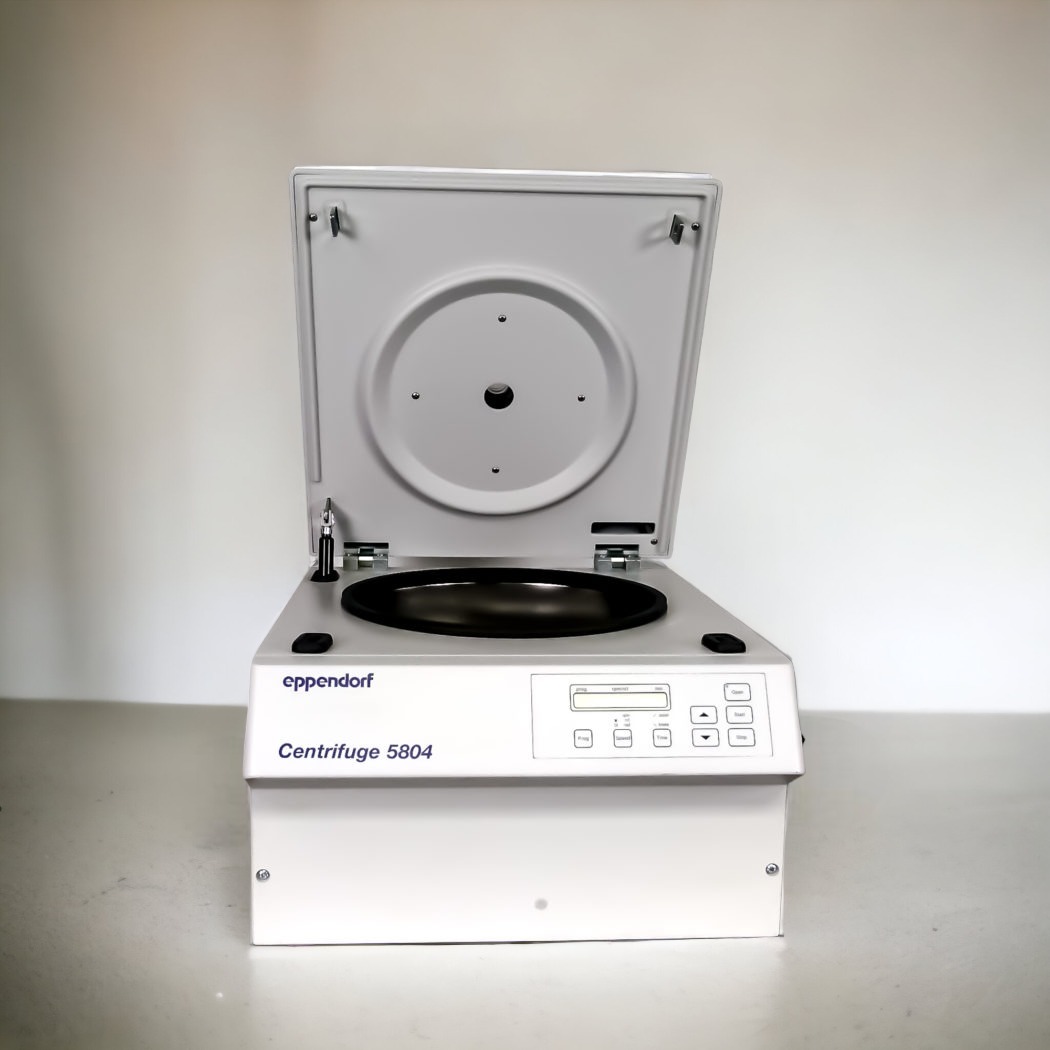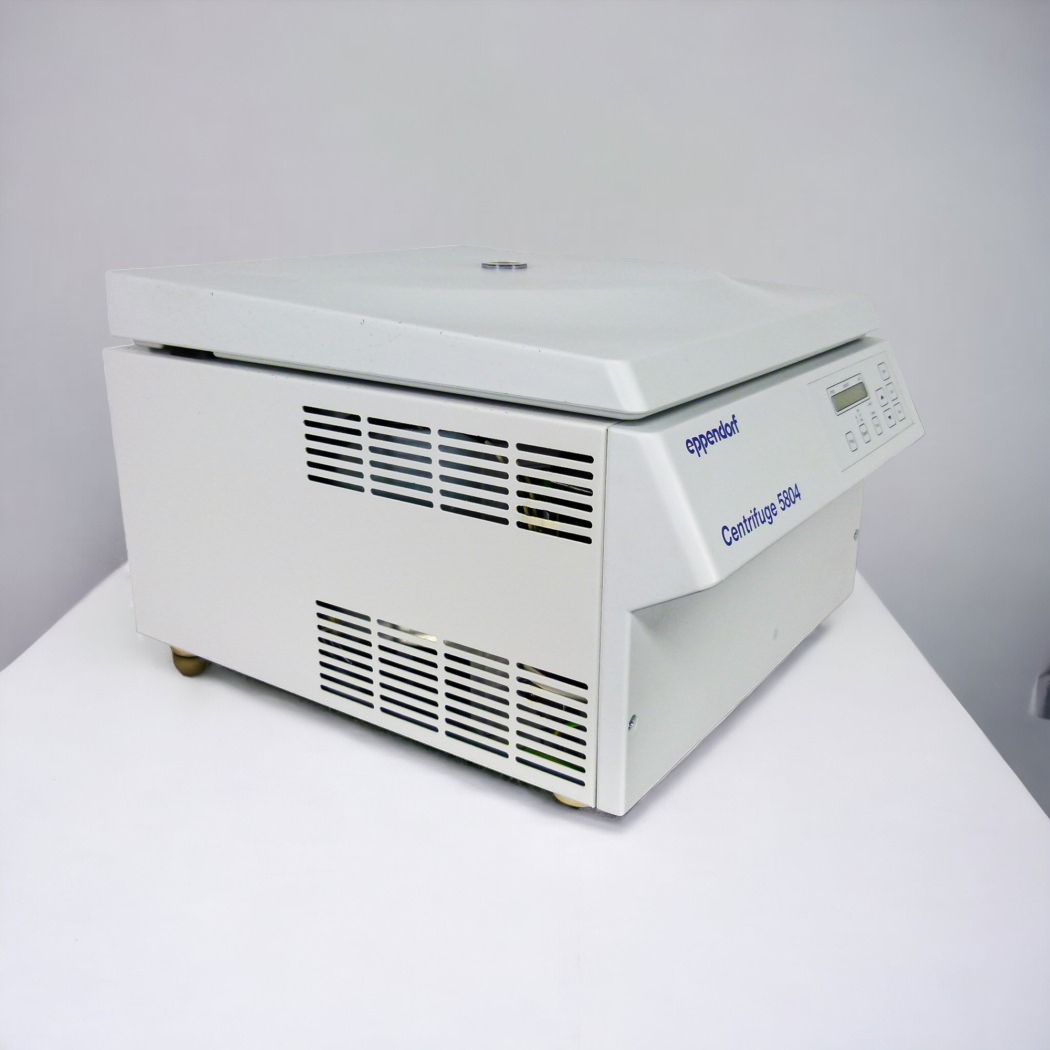Description

Its Purpose:
The Eppendorf 5804 Centrifuge is a laboratory centrifuge that is commonly used in molecular biology, cell culture, and biochemistry applications. It is designed to handle a variety of sample types, including microtubes, PCR strips, and deep-well plates. The centrifuge has a maximum speed of 16,000 RPM and a maximum relative centrifugal force (RCF) of 21,130 x g, making it suitable for a wide range of applications that require high-speed separation of particles in a sample.
Acme’s Summary:
The purpose of the Eppendorf 5804 Centrifuge is to separate substances of different densities in a sample. This is done by subjecting the sample to high centrifugal force, which causes the denser substances to move to the bottom of the container, while the lighter substances remain at the top. The centrifuge is an essential tool for a variety of applications, including the purification of cellular components, the separation of serum or plasma from blood, the concentration of DNA or RNA samples, and the preparation of samples for analysis.
Top 3 Competitors
- Thermo Scientific Sorvall Legend X1 Centrifuge: This centrifuge has a maximum speed of 15,000 RPM and a maximum RCF of 22,000 x g, making it suitable for a wide range of applications. It features a touch-screen interface and can accommodate a variety of sample types and sizes, making it a versatile and reliable option.
- Beckman Coulter Allegra X-15R Centrifuge: This centrifuge has a maximum speed of 15,000 RPM and a maximum RCF of 22,000 x g. It is designed for high-throughput applications and can accommodate up to four liters of sample. It features a user-friendly interface and a variety of safety features, making it a safe and reliable option for the laboratory.
- Heraeus Multifuge X3 Centrifuge: This centrifuge has a maximum speed of 16,000 RPM and a maximum RCF of 22,000 x g. It features a compact design, making it ideal for use in smaller laboratory spaces. It is designed for a wide range of applications, including cell culture and biochemistry, and can accommodate a variety of sample types and sizes.
5 Best Things:
- High speed and RCF: The Eppendorf 5804 Centrifuge has a maximum speed of 16,000 RPM and a maximum relative centrifugal force (RCF) of 21,130 x g, making it suitable for a wide range of applications that require high-speed separation of particles in a sample.
- Versatile sample compatibility: The centrifuge is designed to handle a variety of sample types, including microtubes, PCR strips, and deep-well plates, making it a versatile tool for the laboratory.
- User-friendly interface: The centrifuge features a user-friendly interface, making it easy to operate and adjust settings to meet the needs of specific applications.
- Safety features: The centrifuge is designed with safety in mind and features a variety of safety features, such as automatic rotor recognition and imbalance detection, to ensure that samples are handled safely and securely.
- Purpose: The purpose of the Eppendorf 5804 Centrifuge is to separate substances of different densities in a sample. This is done by subjecting the sample to high centrifugal force, which causes the denser substances to move to the bottom of the container, while the lighter substances remain at the top. This separation of substances is essential for a variety of applications, including the purification of cellular components, the separation of serum or plasma from blood, the concentration of DNA or RNA samples, and the preparation of samples for analysis.

 (4)
(4)








